Acetamide 250 mg Tablet 10's
MRP ₹42.5
(Inclusive of all Taxes)
₹6.4 Cashback (15%)
Provide Delivery Location
Online payment accepted
 Prescription drug
Prescription drugWhats That
Composition :
Manufacturer/Marketer :
Consume Type :
Expires on or after :
Return Policy :
NPPA :
About Acetamide 250 mg Tablet
Acetamide 250 mg Tablet belongs to a group of medicines called carbonic anhydrase inhibitors used to treat glaucoma, oedema (fluid retention), epilepsy, and to treat and prevent altitude/mountain sickness. Glaucoma is an eye condition that causes damage to the optic nerve due to abnormally increased pressure in the eye. Epilepsy is a disorder of the nervous system due to disturbed nerve cell activity in the brain. Fluid retention is a condition in which fluids are accumulated in the body tissues.
Acetamide 250 mg Tablet contains ‘acetazolamide’, which inhibits carbonic anhydrase enzyme. This inhibitory action decreases the secretion of aqueous humour, thereby lowers intraocular pressure. Acetamide 250 mg Tablet inhibits the carbonic anhydrase enzyme; this helps retard abnormal, excessive discharge from central nervous system neurons, thereby helps treat certain dysfunctions of the central nervous system such as epilepsy. Acetamide 250 mg Tablet reduces the activity of carbonic anhydrase, thereby helps lower fluid retention.
You are advised to take Acetamide 250 mg Tablet for as long as your doctor has prescribed it for you, depending on your medical condition. In some cases, you may experience certain common side effects, such as nausea, vomiting, diarrhoea, headache, and increased urination. Most of these side effects do not require medical attention and will resolve gradually over time. However, you are advised to talk to your doctor if the side effects persist or worsen.
Avoid taking Acetamide 250 mg Tablet if you are pregnant, think you are pregnant or planning for pregnancy. Consult your doctor if you are breastfeeding. Acetamide 250 mg Tablet is not recommended for children as safety and effectiveness have not been established. Acetamide 250 mg Tablet might cause dizziness and drowsiness; so, drive only if you are alert. Keep your doctor informed about your health condition and the medicines you are taking to prevent any side effects/interactions.
Uses of Acetamide 250 mg Tablet
Directions for Use
Key Benefits
Acetamide 250 mg Tablet belongs to a group of medicines called carbonic anhydrase inhibitors used to treat glaucoma, oedema (fluid retention), epilepsy, and to treat and prevent altitude/mountain sickness. Acetamide 250 mg Tablet works by inhibiting the carbonic anhydrase enzyme. This inhibitory action decreases the secretion of aqueous humour, thereby lowering intraocular pressure. Acetamide 250 mg Tablet inhibits the carbonic anhydrase enzyme; this helps retard abnormal, excessive discharge from central nervous system neurons, thereby helps treat certain dysfunctions of the central nervous system, such as epilepsy. Acetamide 250 mg Tablet reduces the activity of carbonic anhydrase, thereby helping lower fluid retention. Acetamide 250 mg Tablet may also be used to treat muscle weakness/periodic paralysis and to lower the increased pressure in the areas surrounding the spinal cord and brain.
Storage
- Change positions or take a break from activity to relieve symptoms.
- Avoid postures that put a lot of pressure on just one area of the body.
- If you have vitamin deficiency, take supplements or change your diet.
- Exercise regularly like cycling, walking or swimming.
- Avoid sitting with your legs crossed.
- Clench and unclench your fists and wiggle your toes.
- Massage the affected area.
- Hydrate your body: Drink enough water to prevent dehydration and headaches.
- Calm Your Mind: Deep breathing and meditation can help you relax and relieve stress.
- Rest and Recharge: Sleep for 7-8 hours to reduce headache triggers.
- Take rest: lie down in a quiet, dark environment.
- Cold or warm compresses can help reduce tension.
- Stay Upright: Maintain good posture to keep symptoms from getting worse.
- To treat headaches naturally, try acupuncture or massage therapy.
- Over-the-counter pain relievers include acetaminophen and ibuprofen.
- Prescription Assistance: Speak with your doctor about more substantial drug alternatives.
- Severe Headaches: Seek emergency medical assistance for sudden, severe headaches.
- Frequent Headaches: If you get reoccurring headaches, consult your doctor.
- Headaches with Symptoms: Seek medical attention if your headaches include fever, disorientation, or weakness.
- Rest well; get enough sleep.
- Eat a balanced diet and drink enough water.
- Manage stress with yoga and meditation.
- Limit alcohol and caffeine.
- Physical activities like walking or jogging might help boost energy and make you feel less tired.
- Inform your doctor immediately if you experience a fever after starting a new medication.
- Your doctor may adjust your medication regimen or dosage as needed to minimize fever symptoms.
- Monitor your body temperature to monitor fever progression.
- Drink plenty of fluids, such as water or electrolyte-rich beverages, to help your body regulate temperature.
- Get plenty of rest and engage in relaxation techniques, such as deep breathing or meditation, to help manage fever symptoms.
- Under the guidance of your doctor, consider taking medication, such as acetaminophen or ibuprofen, to help reduce fever.
- If your fever is extremely high (over 103°F), or if you experience severe symptoms such as confusion, seizures, or difficulty breathing, seek immediate medical attention.
- Consult your doctor if you experience skin redness, itching, or irritation after taking medication.
- Your doctor may adjust your treatment plan by changing your medication or providing guidance on managing your erythema symptoms.
- Your doctor may recommend or prescribe certain medications to help alleviate symptoms.
- Apply cool compresses or calamine lotion to the affected skin area to reduce redness and itching.
- Stay hydrated by drinking plenty of water to help alleviate symptoms and keep your skin hydrated.
- Monitor your skin condition closely and promptly report any changes, worsening symptoms, or concerns to your healthcare provider.
- Take a balanced diet rich in protein, vitamins, and minerals.
- Increase calorie intake if necessary, especially for children with poor appetite.
- Engage in regular moderate-intensity exercise.
- Promote healthy movement patterns in children.
- Ensure adequate sleep duration by establishing a consistent sleep schedule.
- Practice relaxation techniques like deep breathing or meditation.
- Limit caffeine, alcohol and tobacco intake.
- If you experience or encounter any severe allergic reaction, stop using medication and consult the doctor right away.
- Tell your doctor about the allergic reaction, including the medication taken and any symptoms experienced.
- Your doctor will evaluate the severity of the reaction and determine the best course of action.
- To ensure a full recovery, follow your doctor's advice, attend scheduled follow-up appointments, and undergo recommended tests to monitor progress and adjust treatment as needed.
Drug Warnings
Do not take Acetamide 250 mg Tablet if you are allergic to any of its contents; if you have severe kidney/liver problems, chronic non-congestive angle-closure glaucoma, Addison’s disease, if you have low sodium and/or potassium levels or high chlorine levels. Inform your doctor if you have lung problems, kidney stones, electrolyte imbalance, adrenal gland problems, diabetes, or heart problems. Avoid taking Acetamide 250 mg Tablet if you are pregnant, think you are pregnant or planning for pregnancy. Consult your doctor if you are breastfeeding. Acetamide 250 mg Tablet is not recommended for children as safety and effectiveness have not been established. Acetamide 250 mg Tablet might cause dizziness and drowsiness; so, drive only if you are alert. Acetamide 250 mg Tablet might make your skin sensitive to sunlight; therefore, wear protective clothing and sunscreen whilst going out.
Drug-Drug Interactions
Drug-Drug Interactions
Login/Sign Up
Co-administration of Cisapride with Acetamide 250 mg Tablet can increase the risk of an irregular heart rhythm that may be serious.
How to manage the interaction:
Taking Acetamide 250 mg Tablet with Cisapride lead to an interaction, please consult a doctor before taking it. Consult a doctor immediately if you experience any symptoms such as dizziness, lightheadedness, fainting, or fast or pounding heartbeats. Do not discontinue the medications without consulting a doctor.
Co-administration of Acetamide 250 mg Tablet with Dofetilide may increase the risk of irregular heart rhythm.
How to manage the interaction:
Although there is a possible interaction between Acetamide 250 mg Tablet and Dofetilide, you can take these medicines together if prescribed by a doctor. If you develop sudden dizziness, lightheadedness, fainting, or fast or pounding heartbeats during treatment with dofetilide, contact a doctor immediately. Also, inform a doctor if you experience signs of electrolyte disturbance such as weakness, tiredness, drowsiness, confusion, muscle pain, cramps, nausea, or vomiting. Do not discontinue the medication without consulting a doctor.
Coadministration of Aspirin with Acetamide 250 mg Tablet may cause side effects.
How to manage the interaction:
Although there is a possible interaction between aspirin and Acetamide 250 mg Tablet, you can take these medicines together if prescribed by a doctor. However, if you experience symptoms such as ringing in your ears, headache, nausea, vomiting, dizziness, confusion, hallucinations, or rapid breathing, fever, and seizure, please contact a doctor. Do not stop using any medications without talking to a doctor.
Co-administration of Acetamide 250 mg Tablet with Topiramate may increase the risk of metabolic acidosis (elevated levels of acid in the blood) and kidney stone formation.
How to manage the interaction:
Although there is a possible interaction between Acetamide 250 mg Tablet and Topiramate, you can take these medicines together if prescribed by a doctor. If you experience symptoms of metabolic acidosis such as tiredness, loss of appetite, irregular heartbeat, trouble thinking clearly, and rapid breathing, contact a doctor immediately. Also, if you experience signs or symptoms of kidney stones, such as sudden back pain, abdominal pain, and blood in the urine, or if you have decreased sweating or a fever, contact your doctor immediately. Do not stop using any medications without consulting a doctor.
Co-administration of Acetamide 250 mg Tablet with Pimozide may increase the risk of irregular heart rhythm.
How to manage the interaction:
Although there is a possible interaction between Acetamide 250 mg Tablet and Pimozide, you can take these medicines together if prescribed by a doctor. If you develop sudden dizziness, lightheadedness, fainting, or fast or pounding heartbeats during treatment with pimozide, contact a doctor immediately. Also, inform your doctor if you experience signs of electrolyte disturbance such as weakness, tiredness, drowsiness, confusion, muscle pain, cramps, nausea, or vomiting. Do not discontinue the medication without consulting a doctor.
Co-administration of Acetamide 250 mg Tablet with Dronedarone may increase the risk of irregular heart rhythm.
How to manage the interaction:
Although there is a possible interaction between Acetamide 250 mg Tablet and Dronedarone, you can take these medicines together if prescribed by a doctor. If you develop sudden dizziness, lightheadedness, fainting, or fast or pounding heartbeats during treatment with Dronedarone, contact a doctor immediately. Also, inform your doctor if you experience signs of electrolyte disturbance such as weakness, tiredness, drowsiness, confusion, muscle pain, cramps, nausea, or vomiting. Do not discontinue the medication without consulting a doctor.
Co-administration of Acetamide 250 mg Tablet with Ziprasidone may increase the risk of irregular heart rhythm.
How to manage the interaction:
Although there is an interaction between Acetamide 250 mg Tablet and Ziprasidone, they can be taken together if prescribed by a doctor. If you develop sudden dizziness, lightheadedness, fainting, contact a doctor immediately. Do not discontinue any medication without talking to a doctor.
Taking Acetamide 250 mg Tablet with Arsenic trioxide may increase the risk of an irregular heart rhythm that may be serious.
How to manage the interaction:
Co-administration of Acetamide 250 mg Tablet with Arsenic trioxide can possibly result in an interaction, but it can be taken if doctor has advised it. If you have any of these symptoms, it's important to contact a doctor right away: feeling dizzy or lightheaded, fainting, having a fast or pounding heartbeat, feeling weak or drowsy, being confused, experiencing muscle pain, or feeling nauseous or vomiting. Do not discontinue any medications without consulting a doctor.
Co-administration of Acetamide 250 mg Tablet together with Salsalate can cause ringing in your ears, headache, nausea, vomiting, dizziness, confusion, hallucinations, rapid breathing, fever, seizure (convulsions).
How to manage the interaction:
There may be a possibility of interaction between Acetamide 250 mg Tablet and Salsalate, but it can be taken if prescribed by a doctor. If you have any of these symptoms, like ringing in your ears, headache, feeling sick, throwing up, feeling dizzy, feeling confused, breathing fast, having a fever, or having a seizure, make sure to call a doctor right away. Do not stop using any medications without talking to a doctor.
Coadministration of amiodarone with Acetamide 250 mg Tablet may raise the risk of an abnormal heart rhythm.
How to manage the interaction:
Even though Amiodarone and Acetamide 250 mg Tablet interact, they can be used if prescribed by a doctor. If you have heart issues or electrolyte imbalances, you may be at higher risk. If you experience sudden dizziness, lightheadedness, fainting, shortness of breath, weakness, drowsiness, confusion, muscle pain, nausea, vomiting, or rapid heartbeat, get medical attention. Do not discontinue any medications without consulting a doctor.
Drug-Food Interactions
Drug-Food Interactions
Login/Sign Up
Diet & Lifestyle Advise
GLAUCOMA:
- Avoid intake of baked foods such as cakes, cookies, doughnuts or fried items such as French fries and stick margarine as these foods may worsen glaucoma and damage the optic nerve.
- Limit coffee intake as it may increase pressure in the eye. Replace coffee with green tea.
- Avoid exercises such as any position where the head is lower than the body, like an inverted yoga pose, as it may increase pressure in the eye. Doing selective exercises is advised for glaucoma patients.
EPILEPSY:
- Exercising regularly helps in maintaining weight and improving overall health.
- Rest well, and get plenty of sleep.
- Avoid smoking and alcohol consumption.
- Meditation and yoga can help lower stress, decrease pain sensitivity and improves coping skills.
- Have a seizure response plan to help those around you know what to do.
- Prepare your living area; small changes may help reduce the risk of physical injury during a seizure.
- Understand what triggers seizures and try reducing or avoiding them.
- Please pay attention to overall health, as it can help reduce seizure activity.
- Install an alarm or emergency device to get assistance during a seizure attack.
FLUID RETENTION:
- Limit salt intake.
- Consume foods rich in magnesium, such as nuts, dark chocolate, whole grains, and leafy vegetables.
- Include foods rich in vitamin B6, such as potatoes, bananas, meat, and walnuts.
- Potassium reduces water retention, therefore, include potassium-rich foods such as avocados, tomatoes, and bananas.
- Avoid refined carbohydrates.
- Walking can help reduce fluid retention.
Side Effects of Acetamide 250 mg Tablet
- Headache
- Nausea
- Vomiting
- Diarrhoea
- Increased urination
- Loss of appetite
- Dizziness
Habit Forming
Therapeutic Class
All Substitutes & Brand Comparisons
RX
Out of StockActazid 250mg Tablet
Ortin Laboratories Ltd
₹30
(₹2.7 per unit)
29% CHEAPERRX
Out of StockEsmide 250mg Tablet
₹33
(₹2.97 per unit)
22% CHEAPERRX
Out of StockGromide 250mg Tablet
₹35.5
(₹3.2 per unit)
16% CHEAPER
Author Details
We provide you with authentic, trustworthy and relevant information
Drug-Diseases Interactions
Drug-Diseases Interactions
Login/Sign Up
The use of carbonic anhydrase inhibitors may rarely cause bone marrow suppression and blood dyscrasias at recommended dosages.
How to manage the interaction:
Acetamide 250 mg Tablet should be used with caution in patients with aplastic anemia ( body stops producing enough new blood cells), thrombocytopenia (low number of platelets in the blood) or thrombocytopenia purpura (low levels of platelets that prevent bleeding), leukopenia (low white blood cells in blood), agranulocytosis (extremely low levels of white blood cells), and hemolytic anemia (red blood cells are destroyed faster than they can be replaced). A baseline CBC and platelet count is recommended, as well as monitoring at regular intervals during therapy.
The use of carbonic anhydrase inhibitors is contraindicated in patients with adrenal insufficiency.
How to manage the interaction:
It should be used with extreme caution in patients with adrenal insufficency (adrenal glands don't make enough hormone, cortisol) and monitoring of electrolyte levels is recommended.
The use of carbonic anhydrase inhibitors is contraindicated in patients with closed-angle glaucoma.
How to manage the interaction:
It should be used with extreme caution in glaucoma patients.
The use of carbonic anhydrase inhibitors is contraindicated in patients with hypokalemia .
How to manage the interaction:
If you have symptoms such as constipation, extreme tiredness, muscle damage, tingling or numbness, contact your doctor immediately.
The use of carbonic anhydrase inhibitors is contraindicated in patients with hyponatremia .
How to manage the interaction:
If you have symptoms such as headache, confusion, nausea, vomiting, muscle weakness or cramps, extreme tiredness or restlessness, contact your doctor immediately.
The use of some carbonic anhydrase inhibitors is contraindicated in patients with severe kidney disease.
How to manage the interaction:
If you have symptoms such as pain, difficulty or discomfort while urinating, bad-smelling urine, cloudy or foamy urine, low back pain on one side, loss of appetite , flank pain between ribs and hips and fever not caused by an infection and that does not go away, contact your doctor immediately.
The use of carbonic anhydrase inhibitors is contraindicated in patients with marked liver disease or cirrhosis.
How to manage the interaction:
It should be used with extreme caution in patients with mild to moderate liver disease, as clearance of the drug may be decreased. A dose reduction might be needed, and monitoring of the liver function is recommended.
carbonic anhydrase inhibitors should be administered cautiously in patients with respiratory acidosis
How to manage the interaction:
It should be used with caution in patients with respiratory acidosis and in conditions such as emphysema (lung disease that causes shortness of breath), pulmonary obstruction, etc. Respiratory status should be monitored during therapy.
Carbonic anhydrase inhibitor anticonvulsants should be administered cautiously in patients with reduced renal dysfunction.
How to manage the interaction:
It should be used with caution in patients with reduced kidney function and a dose adjustment may be required based on the level of impairment.
carbonic anhydrase inhibitors should be administered cautiously in patients with diabetes mellitus.
How to manage the interaction:
It should be used with caution in diabetic patients, and regular monitoring of blood glucose levels is recommended during therapy.
carbonic anhydrase inhibitors should be administered cautiously in patients with gout.
How to manage the interaction:
It should be used with caution in patients with gout and monitoring of uric acid levels is recommended.
carbonic anhydrase inhibitors should be administered cautiously in patients with metabolic or hyperchloremic acidosis
How to manage the interaction:
Acetamide 250 mg Tablet should be used with caution in patients with metabolic or hyperchloremic acidosis or with conditions that lead to acidosis (renal disease, severe respiratory disorders, diarrhea).
FAQs
Drug-Drug Interactions Checker List
- DIGOXIN
- WARFARIN
- METFORMIN
- GLICLAZIDE
- PHENYTOIN
- PRIMIDONE
- CARBAMAZEPINE
- TOPIRAMATE
- PREDNISOLONE
- DORZOLAMIDE
- BRINZOLAMIDE
- QUINIDINE
- LITHIUM
- CICLOSPORIN
- SODIUM BICARBONATE
Special Advise
- If you are due to have any surgery, inform the doctor/surgeon that you are taking Acetamide 250 mg Tablet .
- Your doctor may advise frequent blood tests whilst taking Acetamide 250 mg Tablet .
- Regular monitoring of serum electrolyte levels is advised.
- Talk to your doctor immediately if you have thoughts of harming or killing yourself.
Disease/Condition Glossary
Glaucoma: It is an eye condition that causes damage to the optic nerve (essential for good vision) due to abnormally increased pressure in the eye. If it is not treated in time, it may cause blindness. Usually, there are no symptoms for glaucoma initially, except the slow loss of vision gradually. However, some symptoms include visible rainbow-coloured circles around bright lights or blurred vision. Rarely, glaucoma can develop suddenly with intense pain in the eye, visual disturbance or nausea.
Epilepsy/Seizures: Seizures, also known as fits or convulsions, are a single occurrence of abnormal electrical activity in the brain, whereas epilepsy is a chronic neurological disorder characterized by recurrent seizures. Symptoms include mood changes, anxiousness, nausea, dizziness, weakness, headache, muscle jerking, spasms, loss of balance, teeth clenching, rapid blinking or eye movements, biting the tongue, confusion, and loss of consciousness.
Fluid retention/oedema: It is a condition in which fluids are accumulated in the body tissues. Symptoms include bloating, weight fluctuations, puffiness of the face, abdomen, and hips, and swollen legs, ankles, and feet.

Have a query?
Alcohol
Safe if prescribed
Avoid or limit alcohol consumption as it might lead to increased drowsiness.
Pregnancy
Consult your doctor
Acetamide 250 mg Tablet belongs to pregnancy category C. Avoid using Acetamide 250 mg Tablet if you are pregnant, think you are pregnant or planning for pregnancy. Please consult your doctor if you have any concerns regarding this.
Breast Feeding
Consult your doctor
Consult your doctor if you are breastfeeding; your doctor will decide if Acetamide 250 mg Tablet can be taken by breastfeeding mothers or not.
Driving
Safe if prescribed
Acetamide 250 mg Tablet might cause dizziness and drowsiness. Drive or operate machinery only if you are alert.
Liver
Consult your doctor
Dose adjustment may be needed. Avoid taking Acetamide 250 mg Tablet if you have severe liver problems. Please consult your doctor if you have any concerns regarding the usage of Acetamide 250 mg Tablet in patients with liver impairment.
Kidney
Consult your doctor
Dose adjustment may be needed. Avoid taking Acetamide 250 mg Tablet if you have/had severe kidney problems. Please consult your doctor if you have any concerns regarding the usage of Acetamide 250 mg Tablet in patients with kidney impairment.
Children
Safe if prescribed
Acetamide 250 mg Tablet is not recommended for children as safety and effectiveness have not been established.

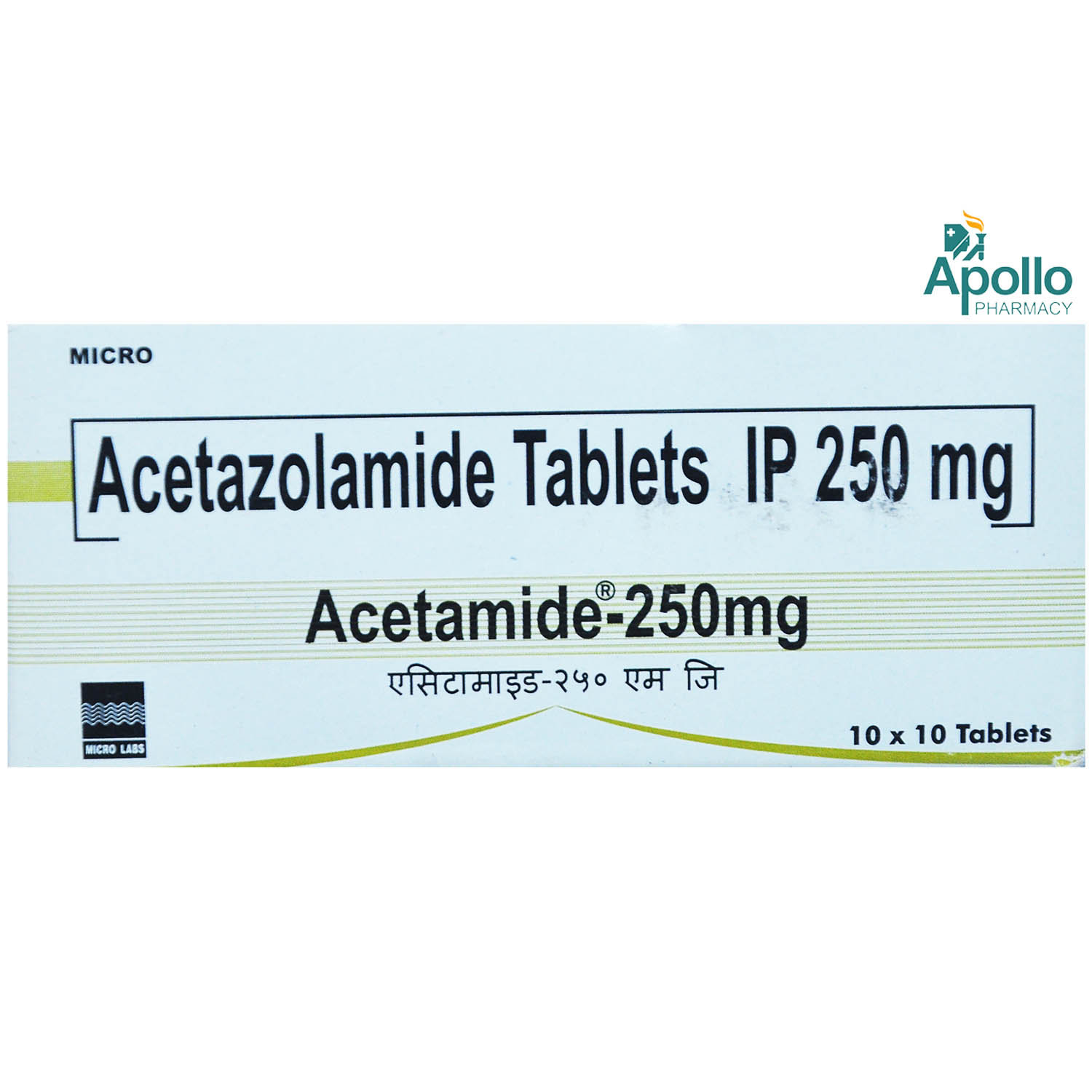
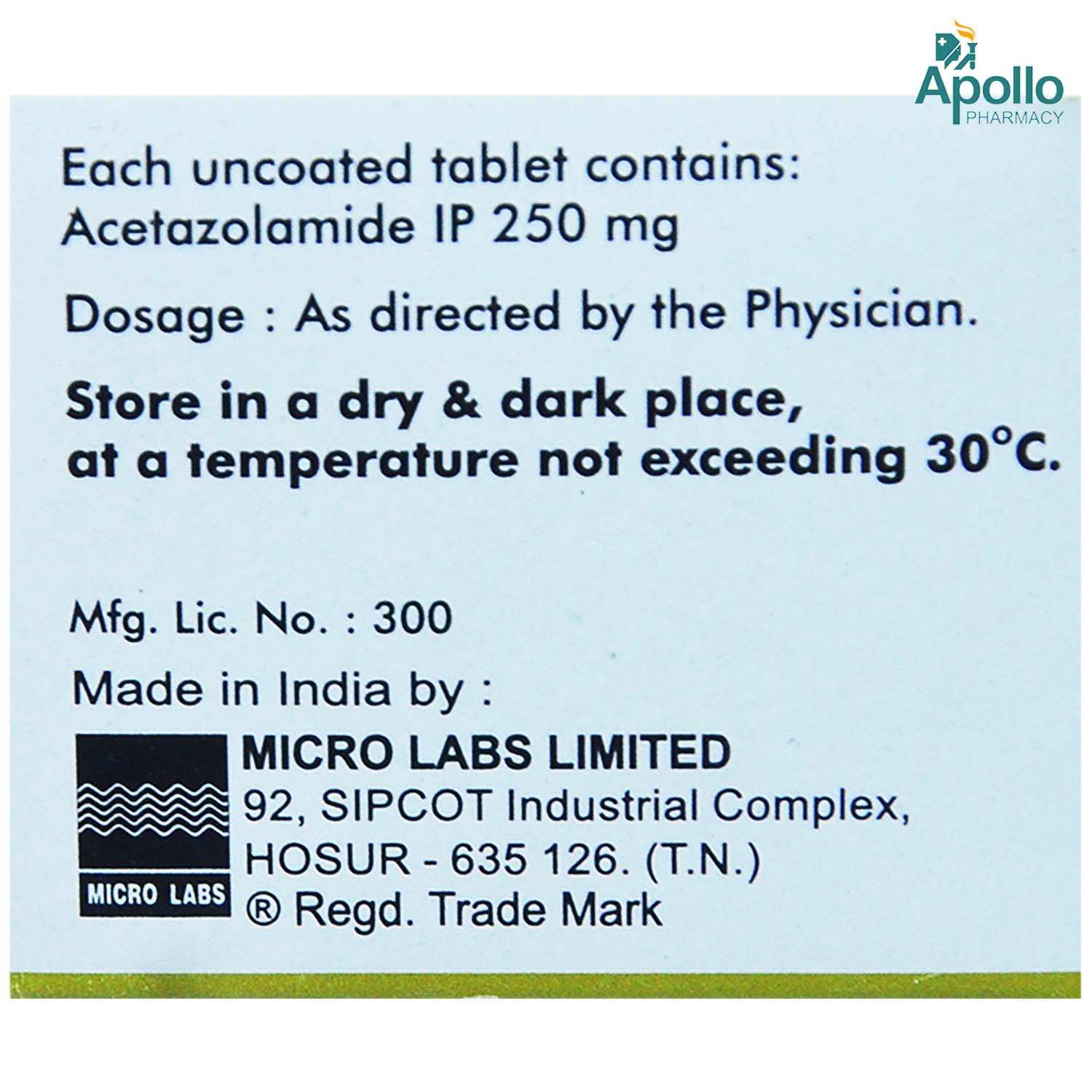
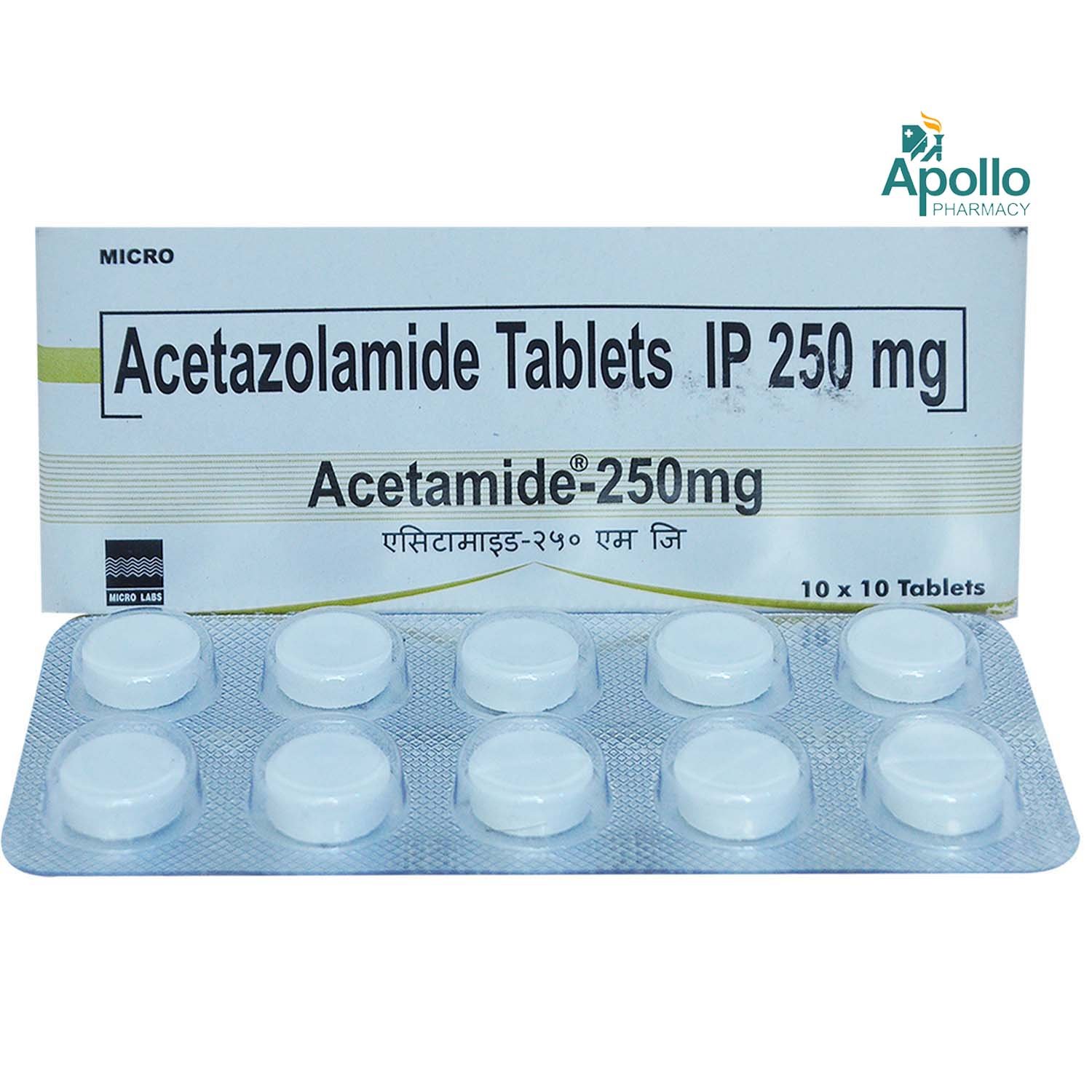
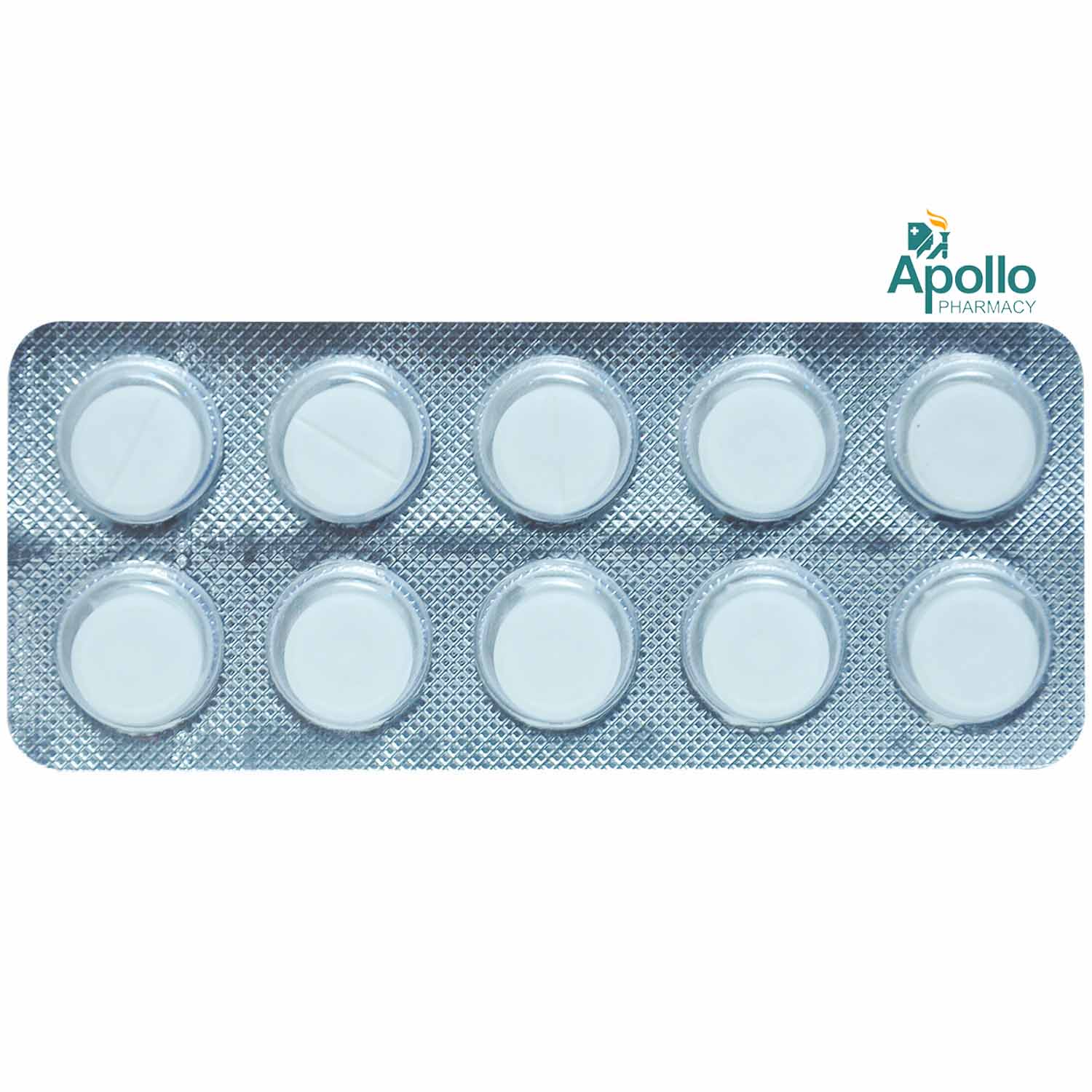
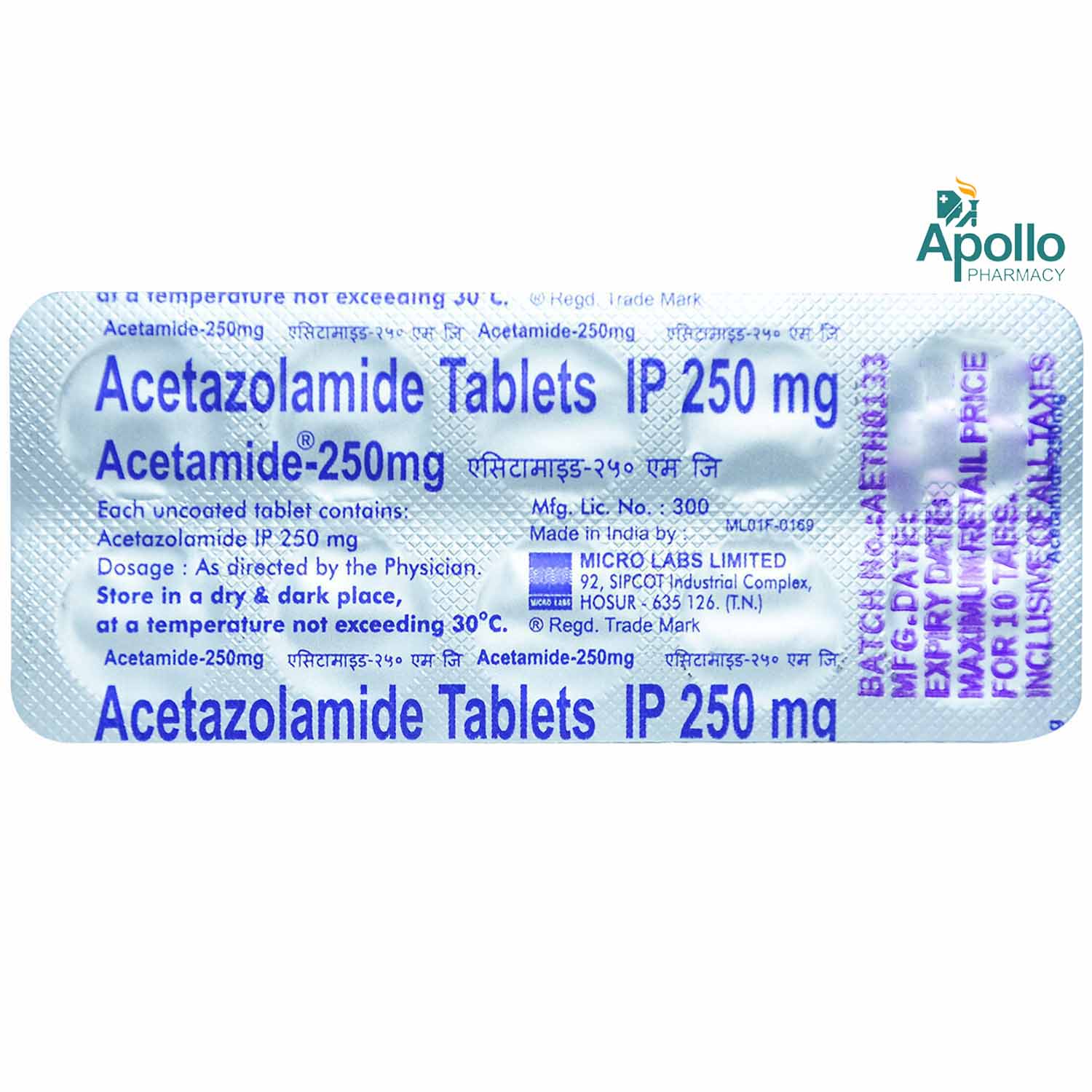








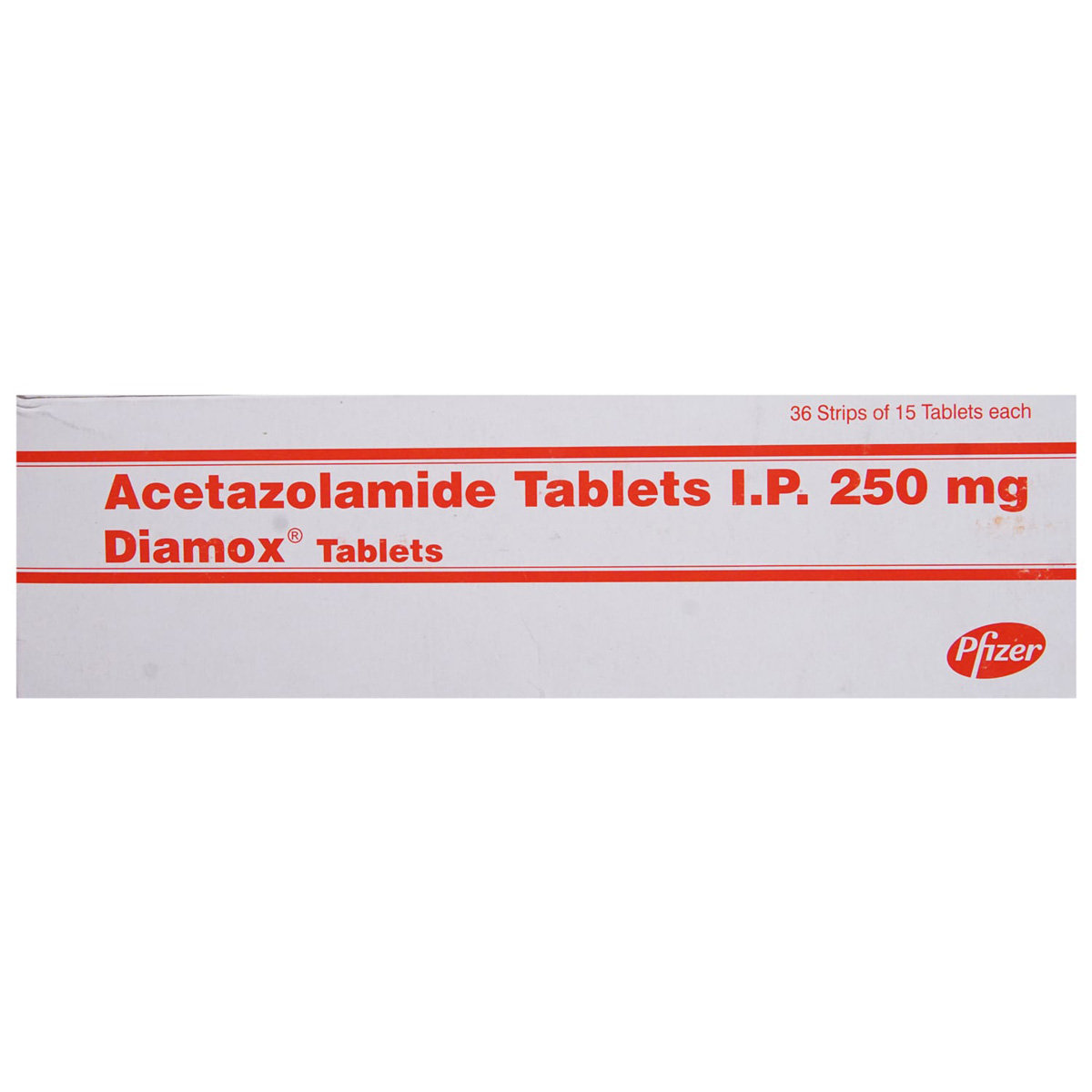

_0.jpg?tr=q-85)

